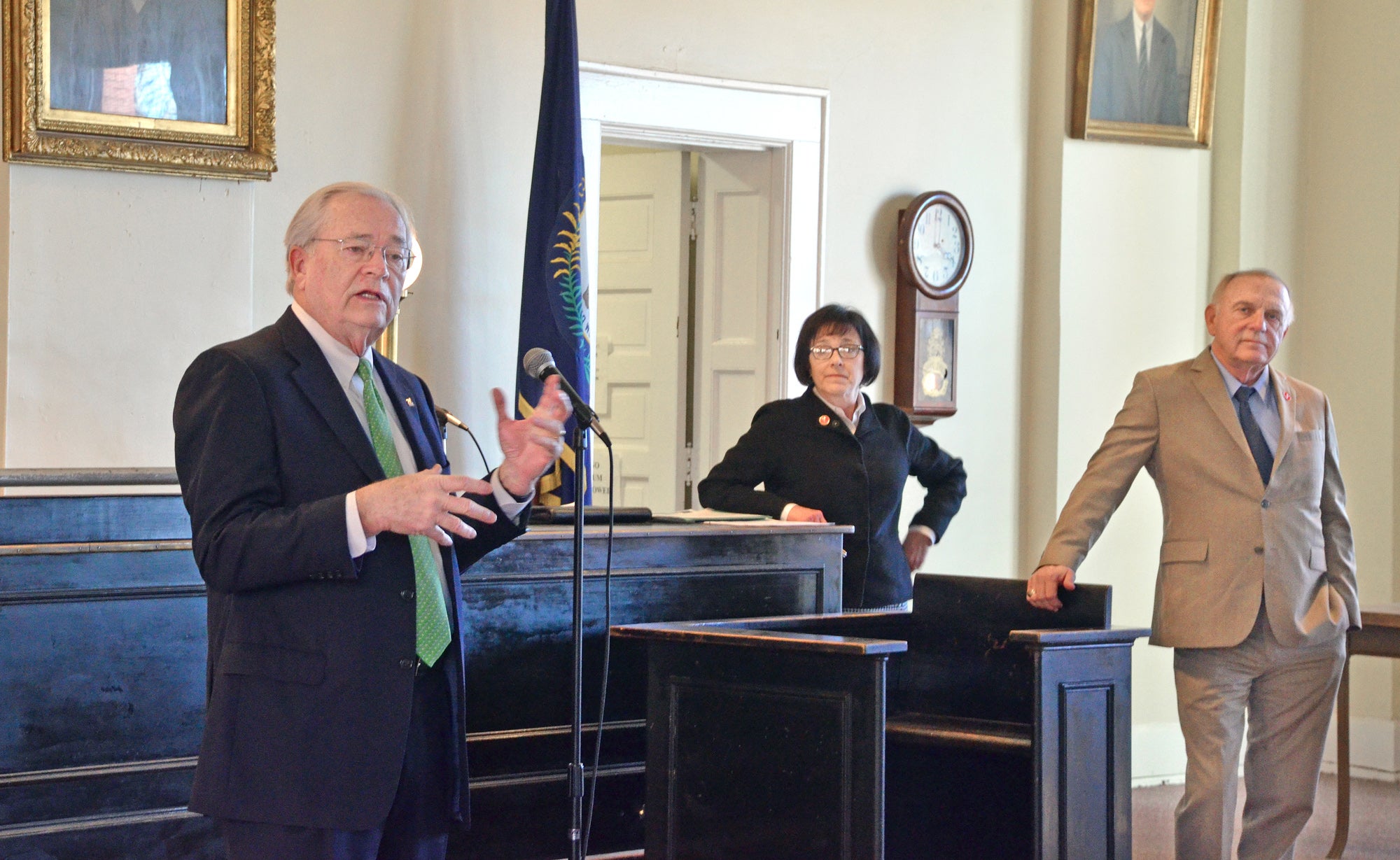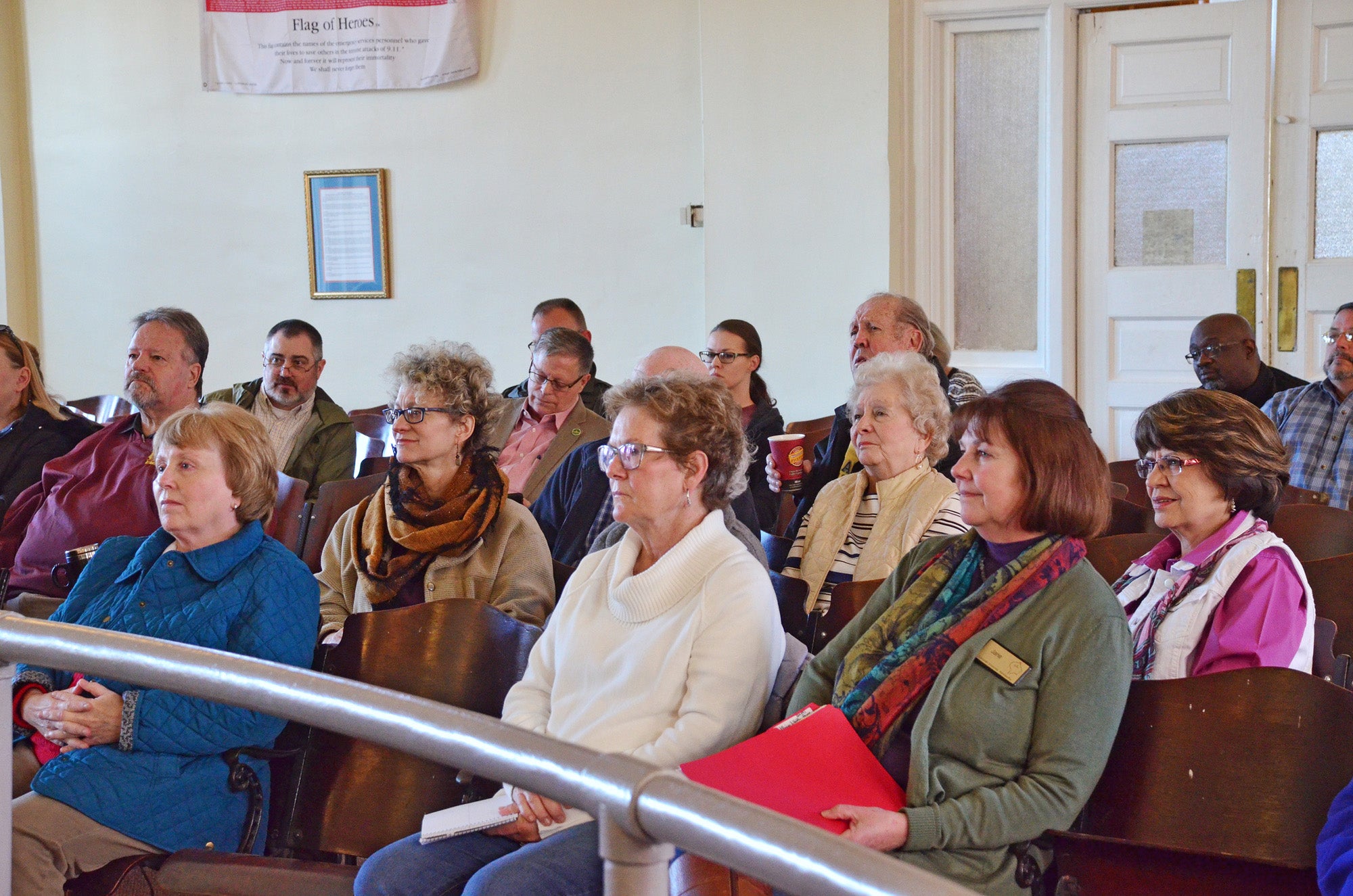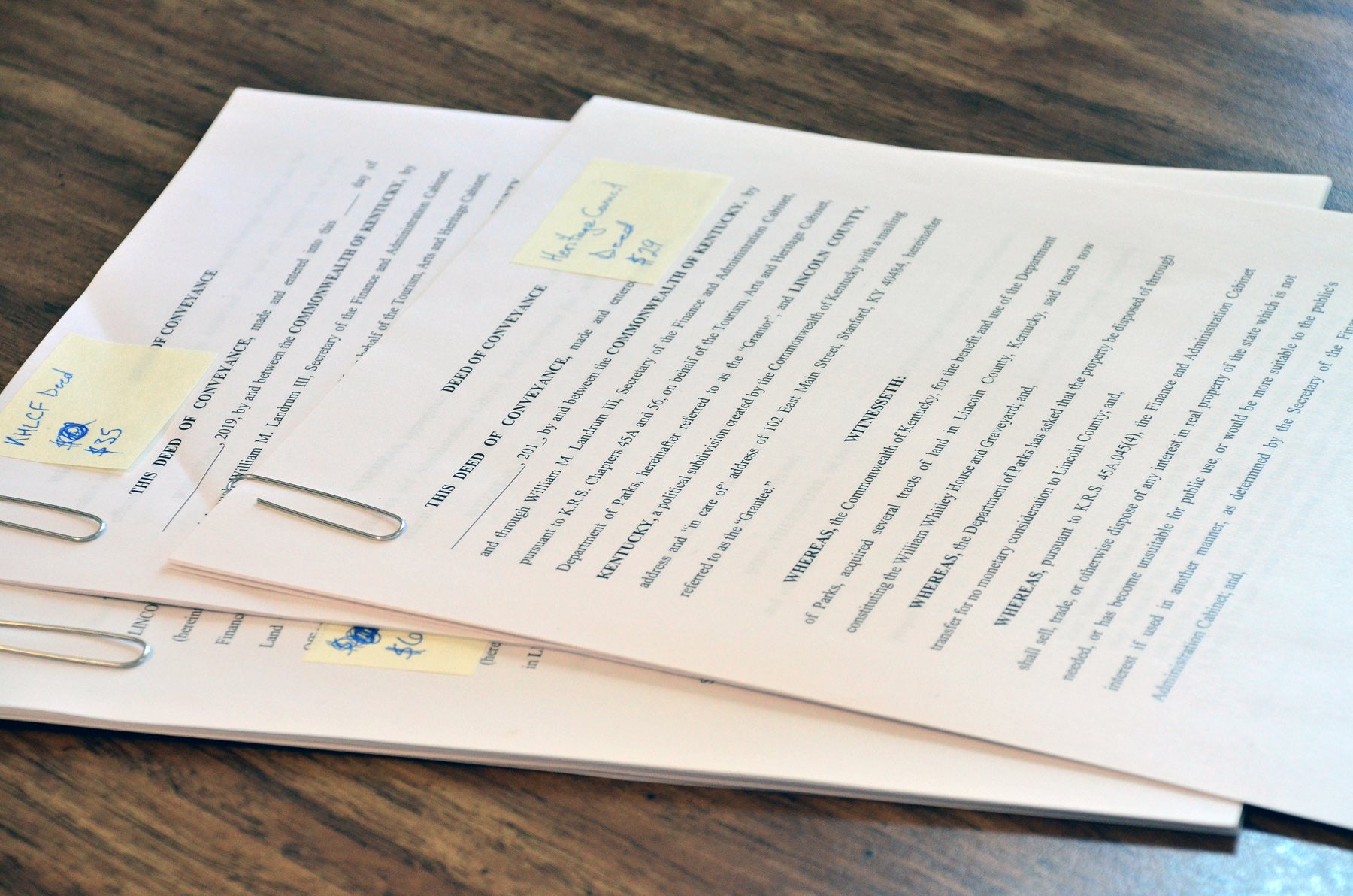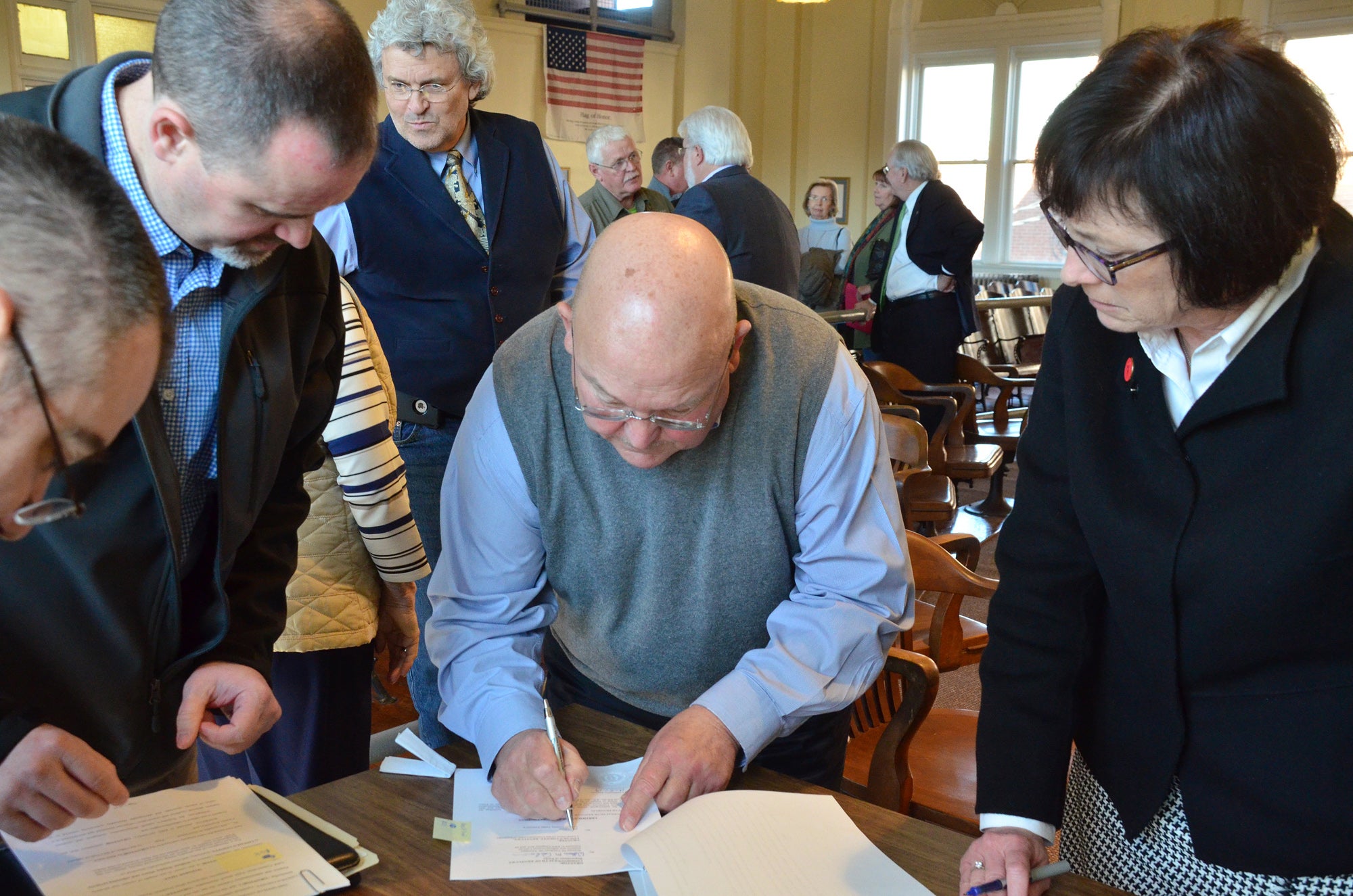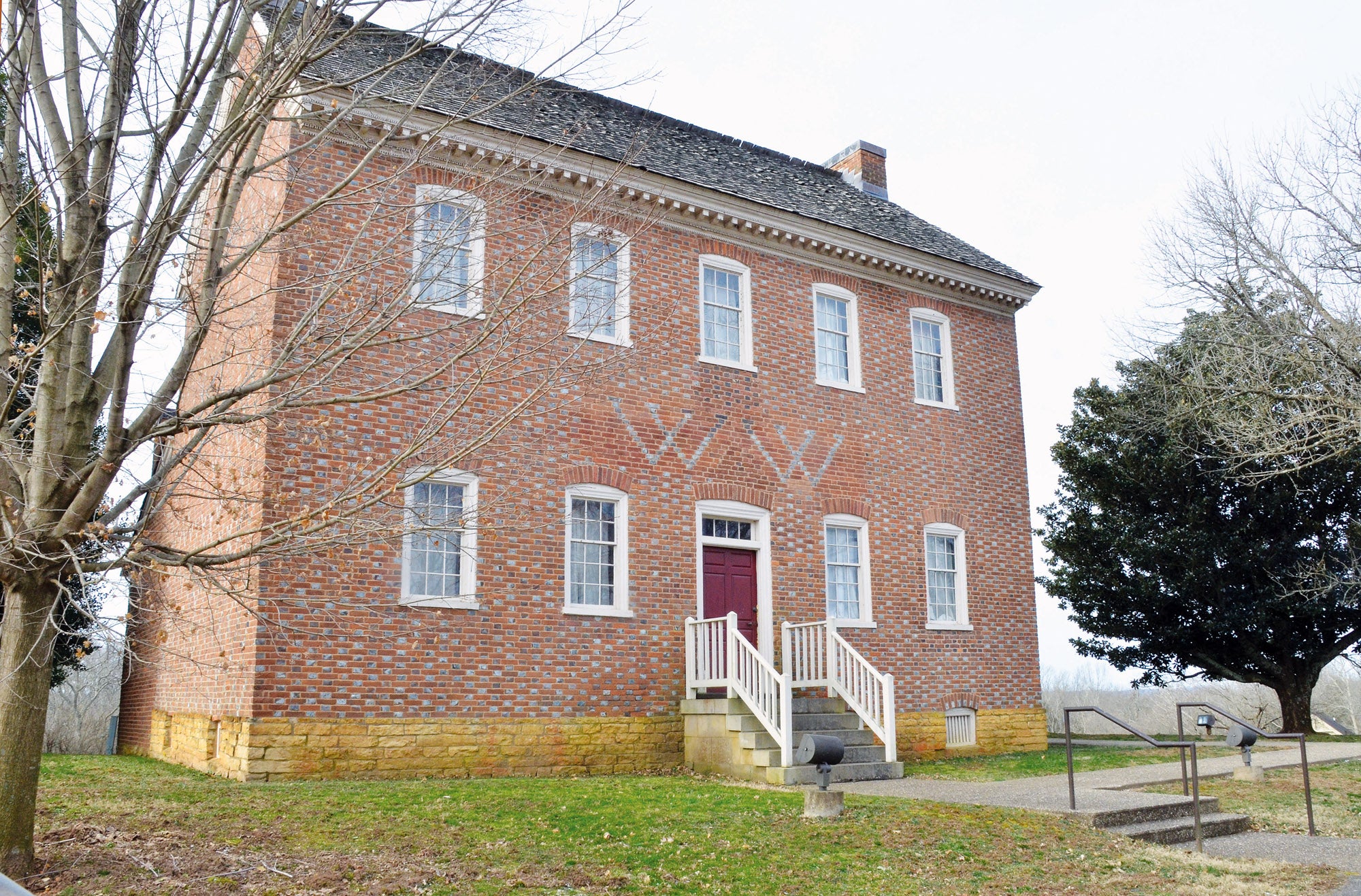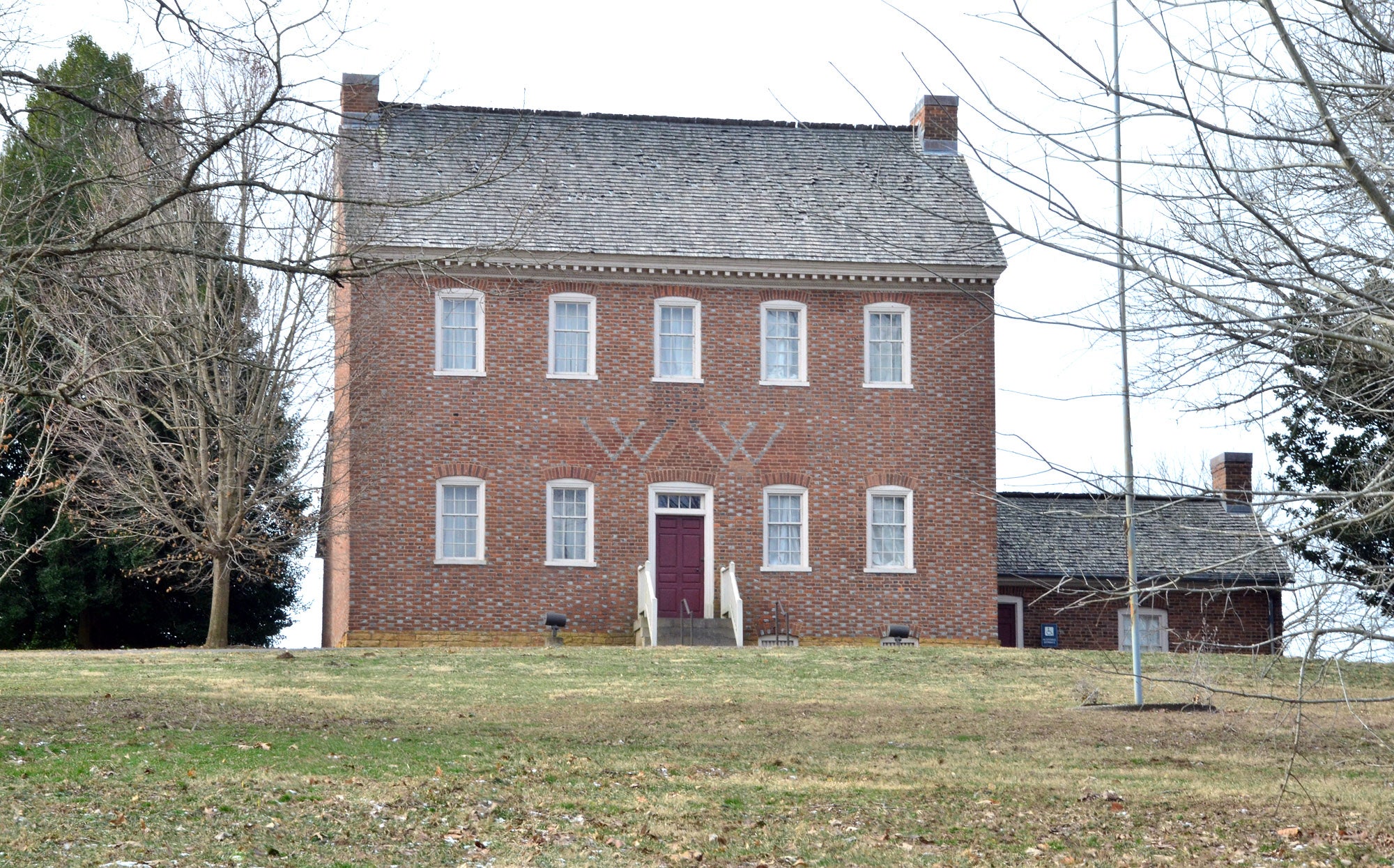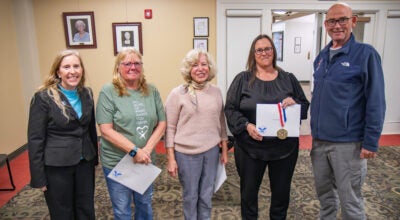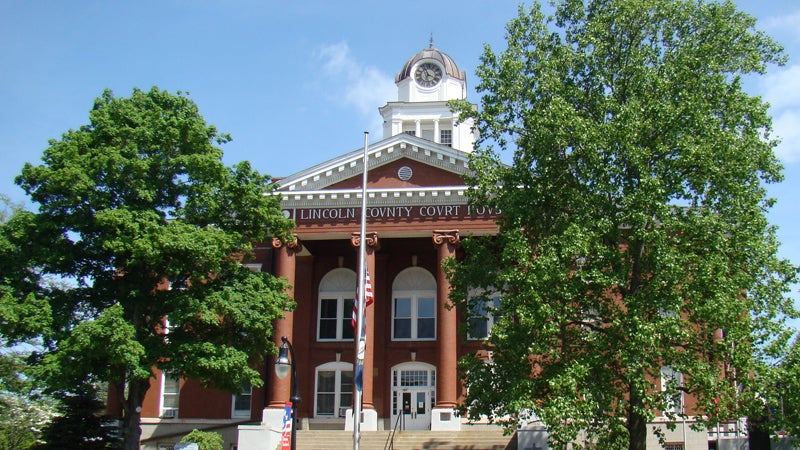Lincoln County takes ownership of William Whitley House property
Published 1:09 pm Thursday, March 28, 2019
STANFORD — Ever since the William Whitley House became a Kentucky state park on Feb. 25, 1938, Lincoln County residents have boasted of the property’s history and beauty. Now, Lincoln Countians can truly claim it as their own.
On Tuesday, March 26, the William Whitley House, which is situated just outside Crab Orchard, became the property of Lincoln County. Judge Jim W. Adams Jr. put his signature on the deed just after 11 a.m. Tuesday to finalize the land transfer between the state and the county.
“This is an opportunity for us to own a part of our history, much like this courthouse,” Adams said. “We have a (fiscal) court that is very conservative. So, if we see that the William Whitley House is going to be a huge financial burden, then we will seek a different path. In the short term, I don’t see it. You can rest assured that we will not spend any more dollars than we absolutely have to.”
Don Parkinson, Secretary of the Tourism, Arts and Heritage Cabinet, said the state has been considering this type of transfer for some time.
“Over the last year or so, we’ve been spending some time on trying to get our asset state parks in line to where they can be best managed,” he said. “We have 49 parks. We’re down to 48 as of today. What we’ve done is transfer assets …. We’ve done a lot of that work around the state.”
Among the assets already transferred to local government include White Hall State Historic Site (transferred to Eastern Kentucky University), the theaters at My Old Kentucky Home (transferred to Nelson County) and Jenny Wiley State Resort Park (transferred to the City of Prestonsburg) and transfer of the airstrip at Kentucky Dam Village to Calvert City.
“This is not all that unusual. It’s been going on for some time,” Parkinson said. “We believe Whitley, which is such an important piece of history in Kentucky, is better managed locally. It’s a great asset. Lincoln County has done a great job … Stanford has done a great job with all the work you’ve done for restoration of this town. It’s amazing to come down here and see this town. It’s like a movie set.”
“We believe the closer you can get to the local community to manage it is better than trying to manage these properties from Frankfort,” he added. “That’s what the idea is, is to try to put them in the hands of the community. We’re not selling them to gas stations or anything like that so the property would be destroyed over time. This is to give a longer life, better management of the property and restoring it as it should be done. This should be considered a positive.”
“We believe very strongly that this community, this county can handle this. This is a good fit for them and for us. We think it will be in better hands locally.”
The William Whitley House, also known as Sportsman’s Hill, is considered a monument to “pioneer ingenuity and resourcefulness.” The home, completed in 1794 by William Whitley and his wife Esther, is believed to be the first brick home built west of the Allegheny Mountains and had the first circular racetrack to run counter-clockwise in the United States. The house was a gathering spot for early Kentuckians, including George Rogers Clark and Daniel Boone.
W.N. Craig, president of the Whitley Park Association, initiated the effort to first acquire the property in 1936 and owner Nellie May Engle of Lexington sold the house and grounds to the state for $2,500 with the stipulation that the property become a state historic site.
Tuesday’s transfer of the William Whitley estate to Lincoln County, which was an inter-government transfer where no monies were exchanged, includes the home and around 100 acres. The transfer also includes Sportsman’s Hill and the Lair Tract, purchased by the state years ago using Kentucky Heritage Land Conservation funds, as well as a cemetery. Included within the deed are conservation easements and preservation easements to protect the historic property. The Lincoln County Historical Society already owns another cemetery on the grounds.
The state’s transfer to the county raised some concerns from local citizens about the future of the William Whitley property as a public site. Jean Bird, Deputy General Counsel for the Tourism, Arts and Heritage Cabinet, quelled concerns of a closure.
“It has to be open to the public,” she said. “There is a clause in the deed where the property would revert back to the state if not. If the house is closed, is no longer open to the public, that it will revert to the Commonwealth.”
Bird’s response prompted Garlan VanHook to question just what constituted being “open to the public.”
“How do you determine the open use in the deed description? Is it open to the public every day? Weekends? And then what other potential uses would be defined as public but yet beneficial to the county in some way?” he asked.
“Well, we certainly wouldn’t require it to be open 365 days a year. It’s not now,” Bird answered. “(Uses) consistent with its use as a park as it is now. There are public events that could be held there easily which would not necessarily be consistent with the use of the property today. Without specific examples I can’t answer exactly.”
And could the county possibly sub-lease the property, VanHook asked.
“If it’s for public use as a park or public venue, it would not cause an issue,” said Bird.
The William Whitley House grounds have been open to the public Thursday through Saturday from April through November and the home open to public tours from May 31 through November. Private tours were also available, including school groups. Access to the Sportsman’s Hill Walking Loop Trail is open year-round.
Along with the Whitley home, grounds, Sportsman’s Hill and the cemetery, Lincoln County also acquires the furnishings and artifacts within the home. There are some exceptions, including Whitley’s rifle and julep cups, which are at the Kentucky History Center in Frankfort. Those items could be obtained on loan for special events. An archaelogical study on the Whitley properties done by the state will also be given to the county.
Jane VanHook of the Lincoln County Historical Society raised two questions on the property’s change of hands.
“First of all, is there an inventory of all the artifacts in the house? We would need to see that and I hope we keep all that intact in the house,” she said. “And another thing is for advertisement. Right now, the state of Kentucky does a great job of advertising its historic places and we need that. Will that continue?”
Bird said the state would continue to handle advertising for a period of time, that the Whitley site would still be getting attention from tourism, including brochures.
“The Department of Tourism advertises for cities, county governments and states. It’s there anyway. That’s part of the transition,” said Ron Vanover, Director of Recreation Parks and Historic Sites. “When this transitions to the county, we’re not just going to go back and pull the plug. We’re going to work with you.”
He did note that Facebook would be a good venue to promote tourism at the Whitley site.
“I would hope that we can advertise and that we can increase the interest in the William Whitley House, whether it’s through the school system or our website,” Judge Adams chimed in. “There’s quite a few things we can use.”
David Faulkner, Magistrate for District 1, voiced his concern over the financial burden the acquisition of the Whitley property could cause the county.
“Personally, I’m excited about the opportunity to take over the house. But we’ve got to be aware the county is going to have expense,” he said. “The reason the state is looking at transferring these properties to local governments is costs. That cost factor doesn’t go away. We pay the same retirement to our employees that you pay to yours.”
Vanover had said the operating costs last year at Whitley were approximately $130,000, noting that there were two full-time employees on staff and that retirement costs were “eating our budgets.”
Adams said he doesn’t anticipate quite the financial burden on the county that the state had shouldered.
“The Historical Society is going to provide the staff for the house – have two or maybe more – strictly all part-time. So there’s no retirement or insurance.
The grounds will be taken care of by part-time personnel. The caretaker’s cabin, which is like cabins in state parks … Someone will be in the home and there are a couple people interested in it. They will have responsibilities as far as opening and closing properties, utilities,” said Adams. “So financially it’s not going to be the burden that they carried.”
“We own 11 different properties, the county does. You guys own 11 different properties,” he said pointing to the crowd. “And it’s going to be folded in in some way. Our public works guy will be responsible for maintenance for the most part. If we have some questions as far as engineering or architecture, we’ve got some pretty good resources here. We’ve got AGE that does contract engineering for us and Garlan does architectural work.”
Adams estimates the county’s annual costs to be in the five-figure range.
“No more than $25,000-$30,000, which we can afford,” he said. “I want to develop the property into a natural state and preserve the track as much as possible. The fence rows need to come out at Sportsman’s HIll and we need fencing around the perimeter. I looked at our labor costs this morning and it’s about $400 a week for the house and $800 a week for the maintenance and that’s without taking into consideration the deputy who wants to live in the (caretaker’s) house where he would have to do work in lieu of rent.”
Adams wasn’t sure how much revenue the property would produce. He said the state brought in just $4,500 last year.
“I’m very confident that we can afford this. I don’t see a down side, not yet anyway.”


